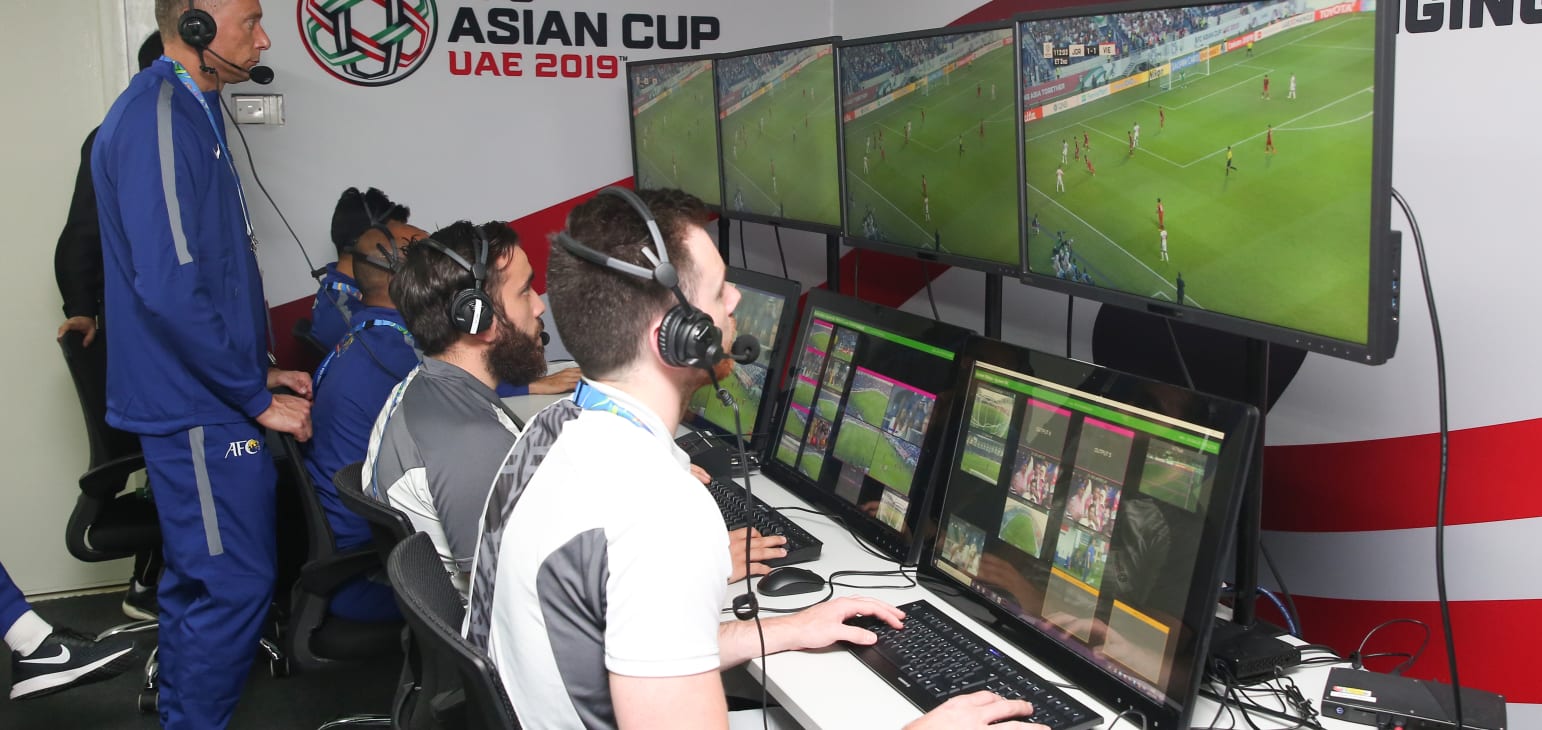By Paul Nicholson
January 24 – The 2019 Asian Cup has been a tournament of firsts and in Dubai today there will be another. The Japan vs Vietnam quarter final will be the first time VAR has been used at an AFC event.
The introduction of VAR is a milestone in the region where only a few of the top national leagues and teams have VAR in operation or have tested the system – Australia, China, Qatar, South Korea and the UAE have it in their leagues while Iran and Japan have played with the system in use at the World Cup.
These teams make up seven of the quarter final qualifiers with only Vietnam not having any VAR experience.
For the AFC the decision on when to implement VAR has been based around the number of fully trained officials who have used the system. Simply, the early rounds of the competition would not have been the time to test the system, according to AFC general secretary Dato Windsor John.
Teething problems have been seen in the introduction of VAR in leagues worldwide including in one game in Germany’s Bundesliga where players were recalled to the pitch at half time to replay the final minutes of the half due to a VAR decision reversal. Even today Spurs manager Mauricio Pochettino urged the English Premier League to delay the introduction of VAR until officials were fully competent in its use. He maintained that no-one was happy with it.
Ultimately the licensing decision on the use of VAR comes down to FIFA’s rule making body IFAB. In the UAE, IFAB technical director, David Elleray, FIFA Referees’ Committee chairman, Pierluigi Collina, and head of FIFA Refereeing, Massimo Busacca are on hand to oversee the system implementation.
Elleray has spent the last 12 days in the UAE working with the referees and VARs. The VAR system can only be used in four game-changing decisions or incidents – goal or no goal, penalty-kicks, red cards and mistaken identity decisions.
“The philosophy behind the system is ‘minimum interference for maximum benefit’ – the VAR is there not to influence every decision but to help the referee when there is a clear error or something serious has been missed in a match-changing incident,” said Elleray.
The principle concern around VAR is while it may correct game changing referring errors it is in itself potentially changing the nature of the game. With continual referrals to VAR can mean the fluid and fast nature of the game is ruptured as decisions are reviewed, often for a number of minutes, while players and the crowd are made to wait.
It is a ultimately a trade-off.
Start of tournament media criticism was that VAR could have been introduced in earlier rounds. One might have expected more calls from teams to bring forward VAR.
The Oman versus Japan game in particular was one where a dubious penalty for Japan was given, while Oman were denied what looked like a nailed on spot kick. VAR would likely have turned a 1-0 lead for Japan into a 1-0 lead of Oman and perhaps resulted in a different outcome. Oman coach Pim Verbeek, when asked, was honest in his assessment that the referee’s decisions might have changed the course of the game but, the way the game was being played, would have been unlikely to change the result.
The referees who will usher in the VAR era for the AFC will be from the UAE. Mohammed Abdulla Mohamed will referee supported by assistant referees, Mohamed Alhammadi and Hassan Almahri, who featured in the 2018 FIFA World Cup in Russia.
The fourth official will be Ammar Aljneibi, who officiated the Group C match between France and Peru in Ekaterinburg, Russia. Australia’s Christopher Beath has been appointed as the VAR and will be assisted by Muhammad Taqi Bin Jahari from Singapore as well as Italian Paolo Valeri.
All eyes will be on them as well as the video screens and the game.
Contact the writer of this story at moc.l1743482803labto1743482803ofdlr1743482803owedi1743482803sni@n1743482803osloh1743482803cin.l1743482803uap1743482803


